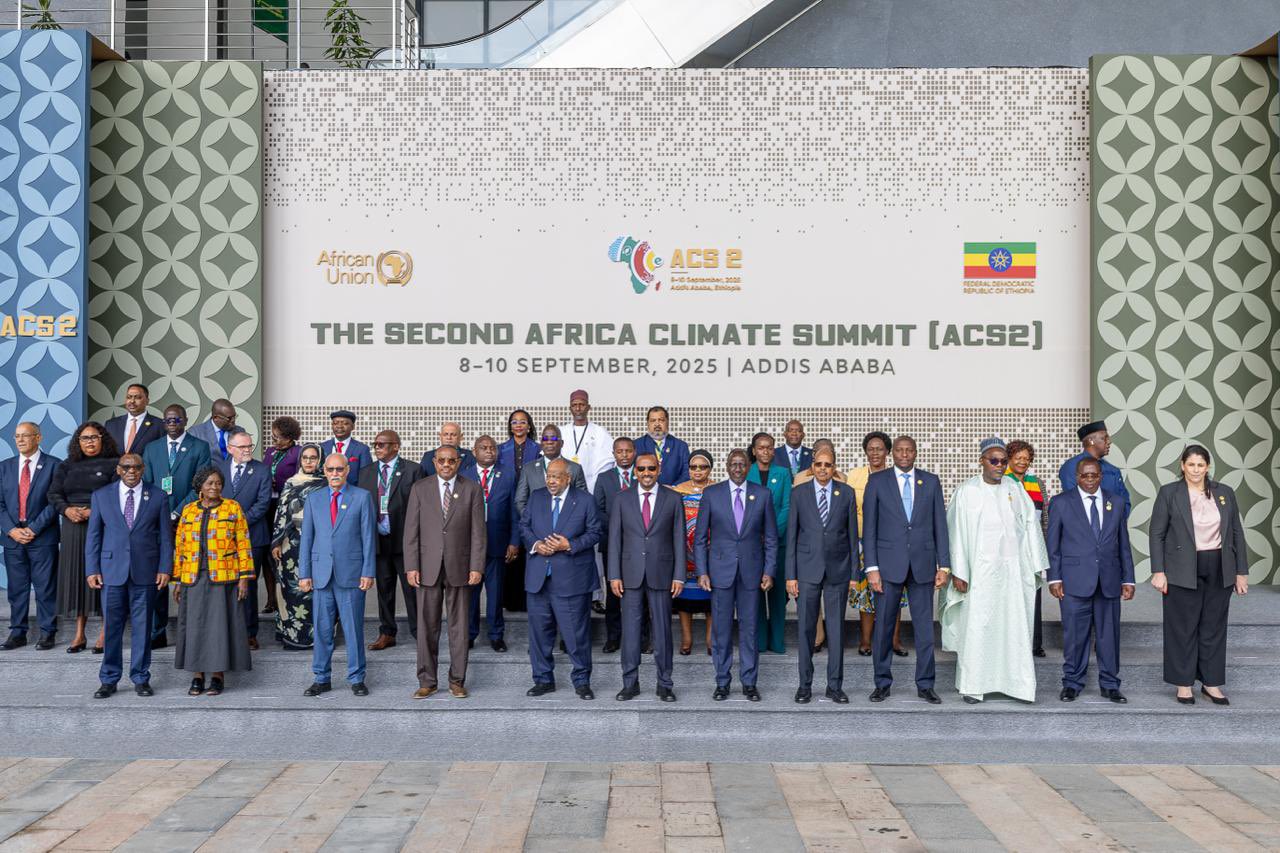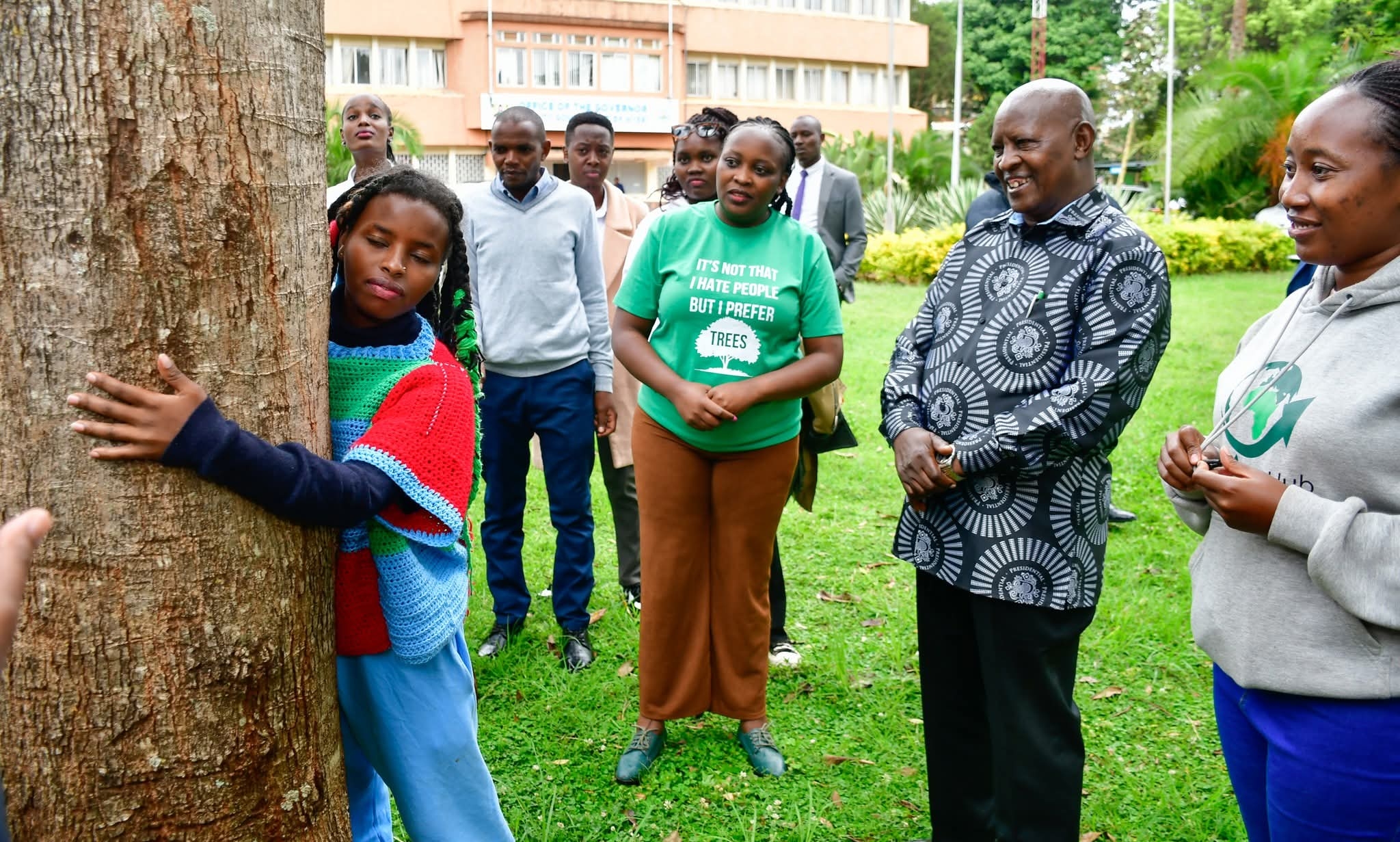
 African leaders during the opening of the second climate summit in Addis, Ethiopia on September 8, 2025/PCS
African leaders during the opening of the second climate summit in Addis, Ethiopia on September 8, 2025/PCSThe Second African Climate Summit (ACS2) concluded in Ethiopia Wednesday with leaders officially adopting the Ababa Declaration on accelerating global climate solutions.
It aims to boost financing for Africa’s resilient, green development and place the continent central to global solutions.
The declaration, coupled with the unveiling of a Flagship Report on African Climate Initiatives, marks a historic moment that repositions Africa from being viewed as a climate-vulnerable continent to becoming a leader in shaping innovative, sustainable, and justice-driven solutions.
Leaders also launched the Africa Climate Innovation Compact, an ambitious platform that will champion Africa-led climate solutions and mobilize resources to accelerate green transitions across the continent.
The compact emphasises the role of innovation, technology, and inclusive financing in scaling up solutions that address Africa’s dual challenge of climate vulnerability and development needs.
Central to the declaration is the recognition of nature-based solutions as a gateway to climate-resilient and green growth.
Ethiopia’s Green Legacy Initiative, a continental tree-planting model that has mobilized millions of citizens to restore degraded land, was hailed as an inspiration for the continent.
In their collective statement, African heads of state reaffirmed that homegrown solutions are key to ensuring resilience and sustainable prosperity.
They called for strengthened and sustained international support to scale up existing initiatives, including the African Union Great Green Wall Initiative, the African Forest Landscape Restoration Initiative, and Ethiopia’s Green Legacy, among others.
The Addis Ababa Declaration reframes Africa’s position in the climate debate, from a continent burdened by vulnerability to one that offers leadership and solutions.
It underscores Africa’s moral authority to demand climate justice, given that it contributes the least to global emissions yet bears a disproportionate share of the impacts.
“By turning our vulnerability into leadership, Africa is showing the world that we are not waiting to be saved; we are driving the change,” they said.
It emphasized that Africa’s voice must carry greater weight in global forums, especially in negotiations over climate finance, adaptation, and the reform of international financial systems.
The adoption of the declaration also signaled a strong call to action for development partners, multilateral lenders, and the private sector to align financing with Africa’s climate priorities.
Leaders argued that the future of global climate stability depends on investments in Africa’s capacity to implement nature-based, inclusive, and innovative solutions.
The declaration further stressed the need for climate justice, urging wealthy nations to fulfill their pledges on climate finance, technology transfer, and capacity building.
Leaders agreed that without fair access to financing and technology, Africa’s aspirations for resilience and green development would remain constrained.
Through the Addis Ababa Declaration and the Africa Climate Innovation Compact, Africa has not only set its priorities but also defined its leadership role in advancing a fair, resilient, and green future for all.
















